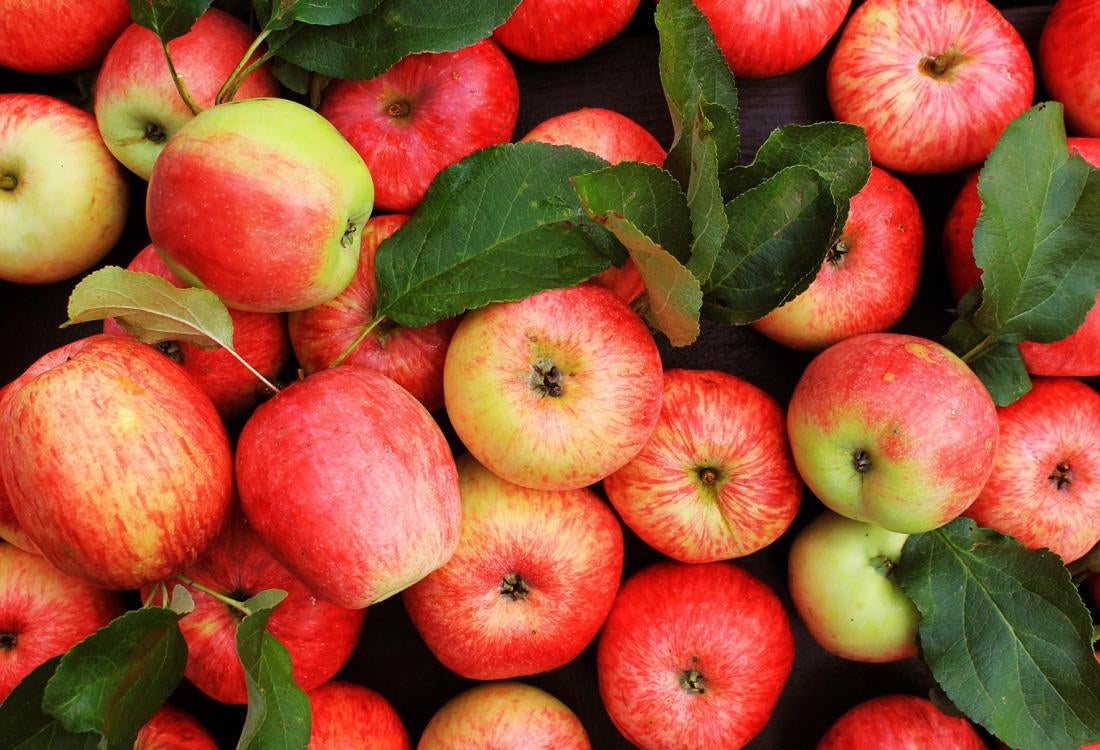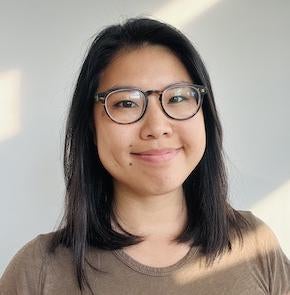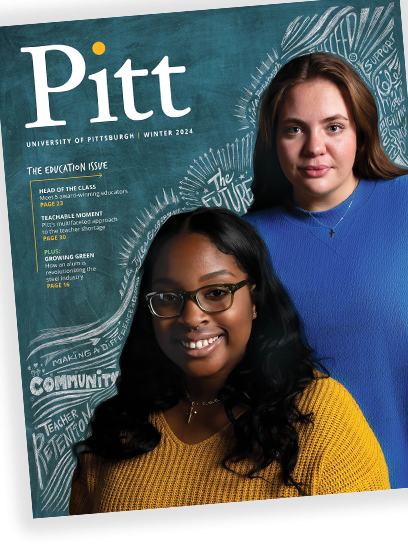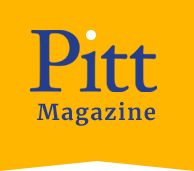
At a stall in Manhattan’s sprawling Chelsea Market, shoppers stop to admire Heather Jiang’s creations — handbags, clutches and wallets in saturated shades of crimson, chestnut and evergreen. They drag their fingers over the supple materials in wonder and then ask the question.
“Can I eat it?”
“No,” Jiang tells them with practiced patience. “Under no circumstances should you eat the bags.”
It’s not that odd of a question. Though Jiang’s bags look like they’re crafted from the finest leather, they’re actually made from fruit. Apples, mostly, though she’s also dabbled in pineapple and mango.
“I’ve learned so much about fruit,” Jiang says, laughing. “I can name so many kinds of apples right now.”
Jiang’s sustainable design company, Allégorie, which she launched in 2019, partners with juice manufacturers to collect pomace, the pulpy remnants left over after apple processing. The pomace is dehydrated, mixed with binding agents and laminated on recycled, plant-based fabric to create the leather-like material Jiang uses for her wares.
Allégorie’s clever upcycling process and classic design have amassed a following of loyal customers online and at markets and pop-up shops around New York City. It’s also garnered national attention from Forbes, Foodtank, Condé Nast Traveler and Vanity Fair, among others. And this summer, H&R Block named Jiang the grand prize winner of its 2024 Fund Her Future grant, awarding her $50,000 and a year’s worth of business services. The money will help to scale the company, which Jiang launched with her personal savings and a little help from her family and now runs full time.

“We have a couple new designs to bring to market and new materials cooking,” she says. “We also want to grow geographically, but to do that takes a lot of resources, so I can’t thank H&R Block enough for the support.”
Jiang (A&S ’11, CBA ’11), who studied both business and the history of art and architecture at Pitt, always believed her dueling interests could live in harmony. Even as she pursued a career in finance in Pittsburgh, Chicago and New York, she maintained a foothold in the design world, acting as a business consultant for boutique designers. She also made an effort to contribute to local environmental and social causes, volunteering for several nonprofits over the years, including food rescue organizations.
It was that dedication to reducing food waste that sparked the idea for Allégorie. Jiang saw an opportunity to take her volunteering to a new, more impactful level. According to the United Nations, more than 930 metric tons of food waste end up in landfills every year, releasing methane gas as it decays. Allégorie diverts some of that waste and, according to the company’s research, avoids 2.5 kilograms of carbon emissions for every 1 kilogram of apple pomace it upcycles.
The exciting part, according to Jiang, is that the larger Allégorie grows, the more food waste it will be able to divert and the more it will help the environment. The merchandise is just a beautiful means of getting there.
“It’s not about the handbag,” Jiang says. “It’s about the idea behind it. The handbag serves as a token, a reminder, of what can be done.”



